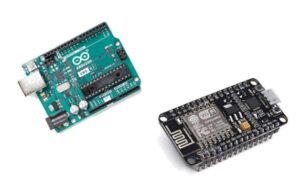The rapid advancement of technology has led to the integration of the Internet of Things (IoT) in various aspects of our lives, revolutionizing the way societies function and interact. IoT refers to the interconnection of everyday objects and devices to the internet, enabling them to collect, transmit, and exchange data seamlessly. In this comprehensive article, we delve into the diverse use cases and technological outlines of IoT in societies, highlighting its impact on various sectors and showcasing its potential to shape the future.
Introduction: The IoT Revolution
IoT, once a futuristic concept, has become an integral part of our lives, permeating industries, businesses, and homes. Its ability to connect devices and gather data has opened up new possibilities, leading to increased efficiency, automation, and convenience. As we explore the various applications of IoT in societies, it becomes evident that this technology has the potential to transform the way we live, work, and interact.
Use Cases of IoT in Societies
Smart Cities: Pioneering Urban Development
Cities around the world are adopting IoT to enhance urban living. Smart city initiatives encompass a range of applications, including intelligent transportation systems, waste management, energy optimization, and public safety. By leveraging data from connected devices, city planners can make informed decisions to improve traffic flow, reduce energy consumption, and ensure the safety of residents.
Healthcare Transformation: IoT in Medical Monitoring
The healthcare industry has witnessed a significant transformation through IoT. Medical devices equipped with sensors can monitor patients’ vital signs in real-time and transmit data to healthcare professionals. This allows for timely interventions, remote patient monitoring, and improved patient outcomes. IoT-enabled medical devices have the potential to revolutionize patient care and management.
Agricultural Innovation: Precision Farming for Sustainable Agriculture
IoT is revolutionizing agriculture by enabling precision farming techniques. Sensors placed in fields collect data on soil moisture, temperature, and crop health. Farmers can use this information to make informed decisions about irrigation, fertilization, and pest control. By optimizing resource usage, IoT contributes to sustainable agriculture and increased crop yields.
Industrial Automation: Enhancing Efficiency and Safety
In the industrial sector, IoT-driven automation has led to increased efficiency and worker safety. Connected machines can communicate and coordinate tasks, minimizing downtime and reducing the risk of accidents. Predictive maintenance, enabled by IoT, helps prevent equipment failures by identifying issues before they escalate, thus saving time and resources.
Retail Revolution: Personalized Shopping Experiences
Retailers are leveraging IoT to offer personalized shopping experiences to customers. Through beacons and RFID technology, stores can track customer movements and preferences. This data enables targeted marketing campaigns, customized promotions, and improved inventory management, enhancing the overall shopping experience.
Environmental Monitoring: Preserving the Planet
IoT plays a crucial role in environmental conservation by providing real-time data on air and water quality, deforestation, and wildlife tracking. Scientists and conservationists can use this data to monitor environmental changes and make informed decisions to protect natural ecosystems.
FAQs
How does IoT impact everyday life?
IoT has a profound impact on everyday life by enhancing convenience, efficiency, and safety. From smart homes that automate tasks to wearable devices that monitor health, IoT technologies are seamlessly integrated into our routines.
Are there any privacy concerns associated with IoT?
Yes, privacy concerns are a valid consideration with IoT. The constant data collection and connectivity of devices raise issues related to data security and potential breaches. Implementing strong security measures and user data protection protocols is essential to address these concerns.
What role does IoT play in environmental sustainability?
IoT contributes to environmental sustainability by enabling real-time monitoring of natural resources, pollution levels, and wildlife habitats. This data-driven approach allows for informed conservation efforts and more efficient resource management.
Can IoT be applied in rural areas with limited connectivity?
Yes, IoT can be adapted for use in rural areas with limited connectivity. Low-power, wide-area networks (LPWANs) and satellite communication are viable options for extending IoT benefits to remote locations with less developed infrastructure.
How does IoT influence the manufacturing sector?
IoT revolutionizes the manufacturing sector by enabling smart factories and predictive maintenance. Connected machines and real-time data analytics optimize production processes, reduce downtime, and improve overall operational efficiency.
What is the future outlook for IoT in societies?
The future of IoT in societies is promising. As technology continues to evolve, we can expect even more innovative use cases across various sectors, further integrating IoT into our daily lives and reshaping the way we interact with our surroundings.
Anupam M is blogging on this site on different aspects of technology, job, and business. He is an experienced IT professional with an Engineering degree from a premier NIT. Know more

